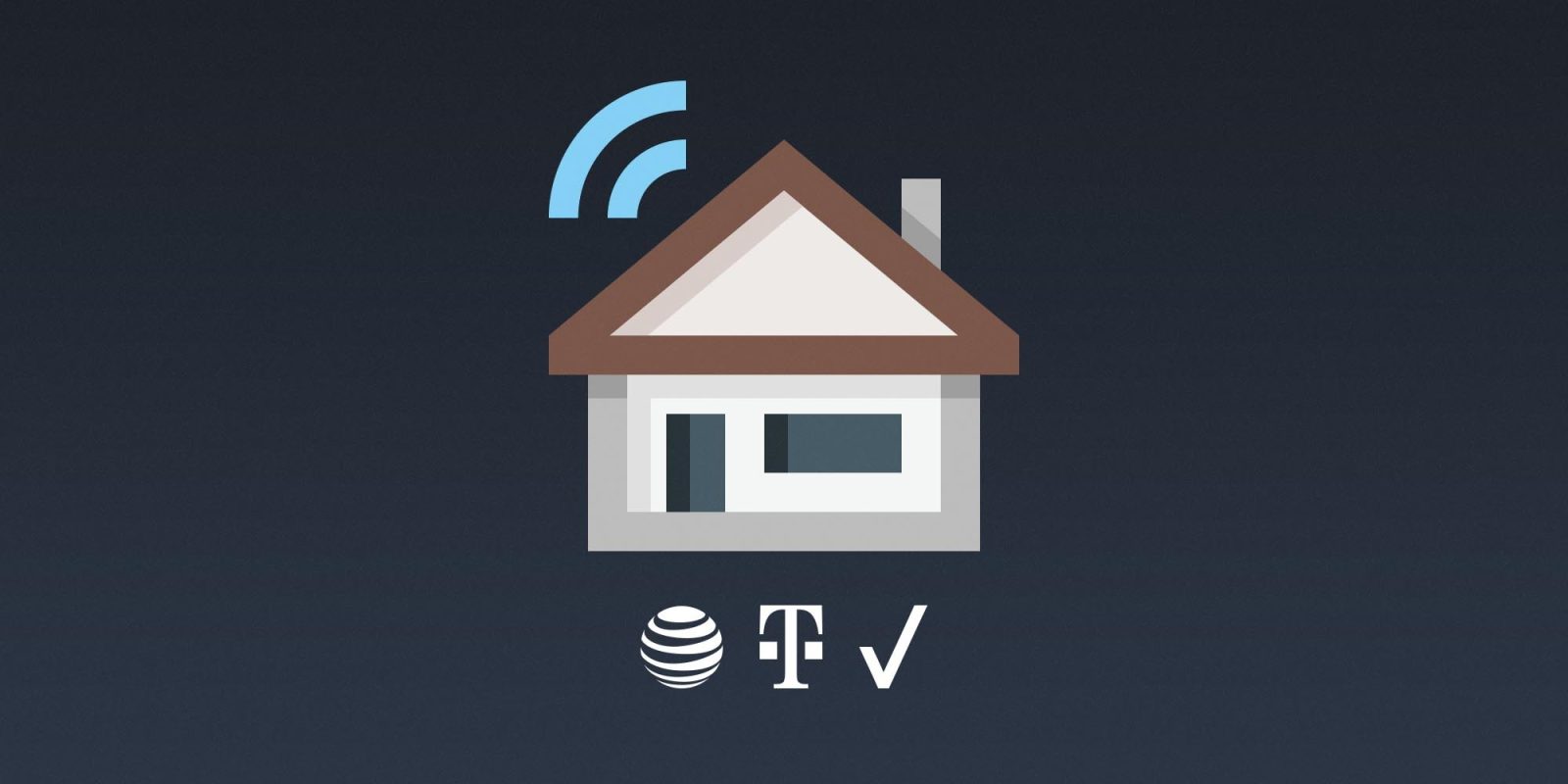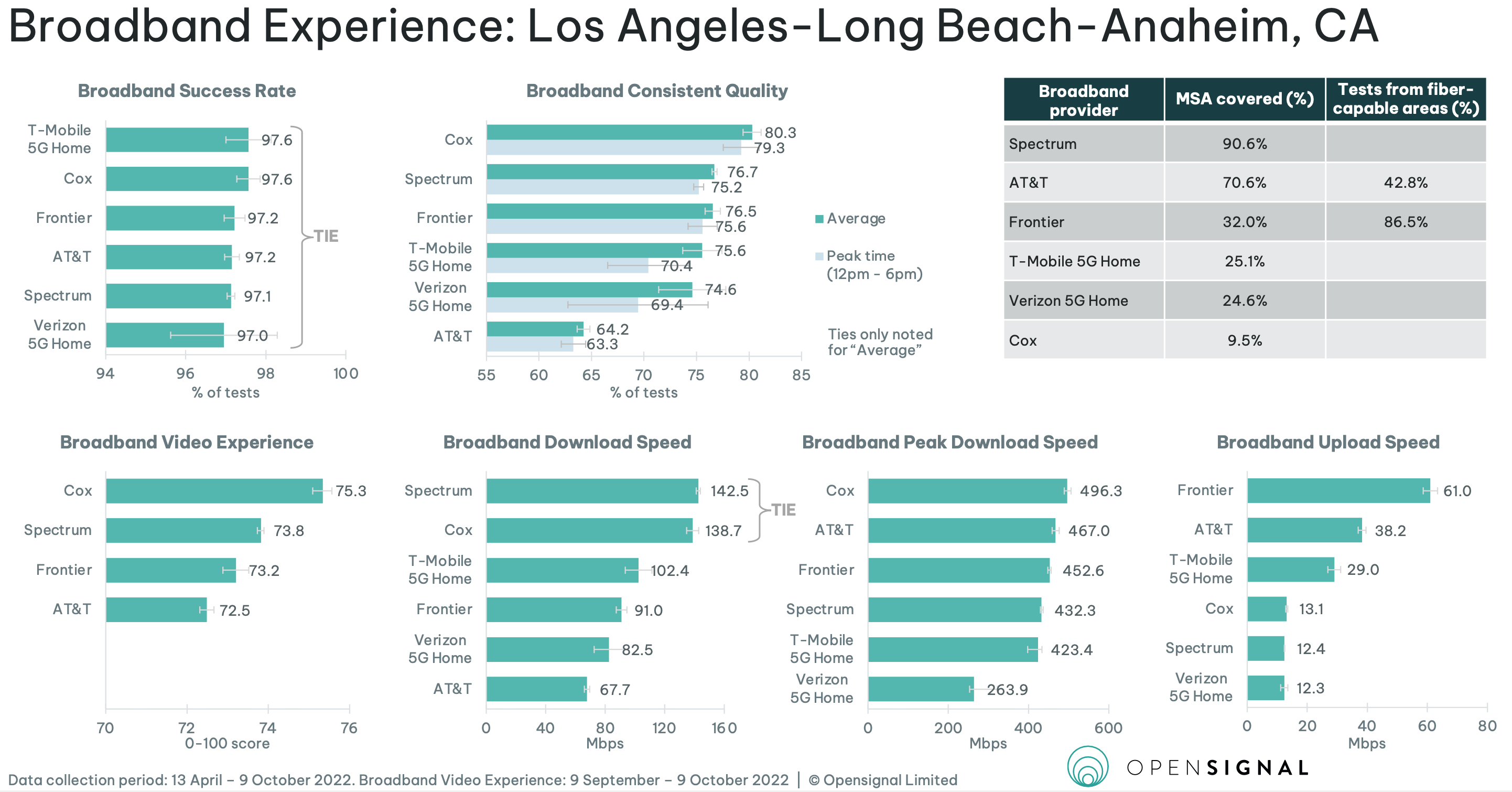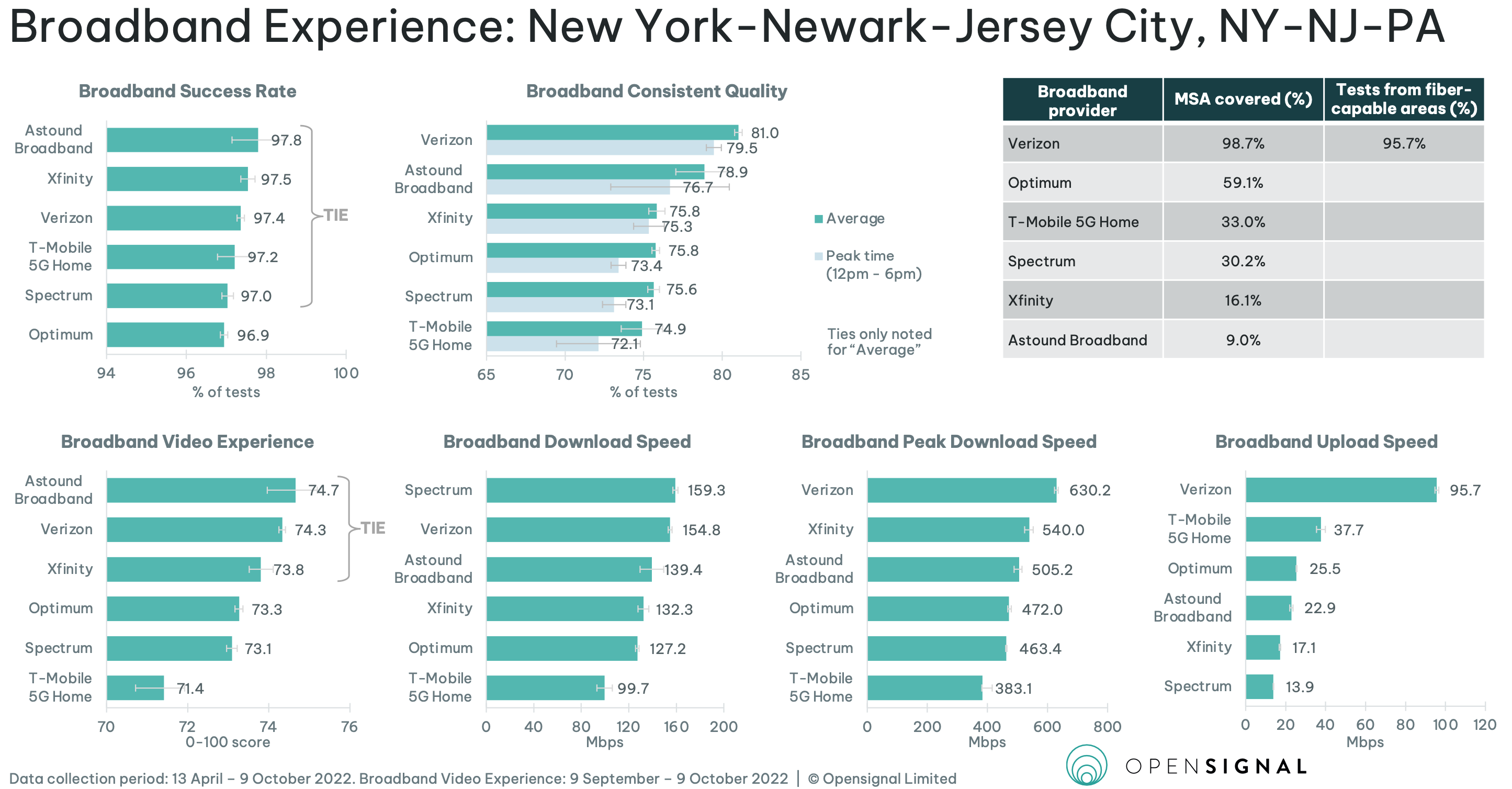
Known for its in-depth, independent reports on wireless carriers’ networks that are based on millions of measurements, Opensignal is out with its first study on how fixed broadband services compare in the US. Along with traditional providers, Opensignal has included Verizon and T-Mobile’s 5G Home Internet services.
Opensignal normally provides a national score for providers in its cellular studies. However, that doesn’t work when it comes to broadband.
“No broadband provider offers service to every home. As a result, any national experience table will in practice miss the most important details for users comparing the broadband experience in their area. For this reason, in this first report we have analyzed the real-world situation, across all users’ plans, in 25 major markets to assess the fixed broadband experience. We use metropolitan statistical areas (MSAs) as definitions of each market — each centers around a large city or population center.”
Opensignal’s detailed US fixed broadband report features nine key overall findings and for each metro market, the providers are rated on six metrics:
- Broadband Success Rate
- Broadband Consistent Quality
- Broadband Video Experience
- Broadband Download Speed
- Broadband Peak Download Speed
- Broadband Upload Speed
Here’s a look at the results from LA/Long Beach/Anaheim:

And here’s a look at New York/Newark/Jersey City:

You can check out the full report with the other 23 major markets’ results.
Opensignal US broadband report key findings
- Fixed broadband in the U.S. is undergoing rapid development and modernization. Consumers have more choice of broadband providers than ever before. Now, cable companies and incumbent telephone companies face competition from new fiber overbuilders and fixed wireless players using the latest 5G technology.
- 5G fixed wireless access (FWA) players are typically middle of the pack across the six essential measures of fixed broadband experience. Incumbent cable and telecom companies typically comfortably beat the new entrant 5G FWA providers, at least for now.
- In most markets, cable companies had the highest Broadband Download Speed scores. This success for cable providers — Spectrum, Xfinity, Optimum, and Cox — was despite the arrival of 5G- based fixed broadband. Fiber players are changing this situation, but in the 25 cities analyzed in this report they lead in a minority.
- Providers often advertize maximum speeds that are very different to real-world experience. Claimed speeds are now as high as 2 Gbps or 5 Gbps, with 8 Gbps in 2023. In this report, Opensignal quantifies the experience of users based on real-world measurements.
- In the peak time of day, now noon to 6pm, Broadband Consistent Quality scores tended to be lower. However, statistical differences between providers’ peak time and average Broadband Consistent Quality are uncommon.
- Across many markets, it is the incumbent telephone companies that come top for Broadband Upload Speed. Such companies, for example AT&T, Frontier or Verizon, have substantial leads above the next best provider due to their extensive fiber-to-the-home footprints. Fiber-based players are far ahead of every other type of broadband technology in the Broadband Upload Speed experience category, which has grown in importance since the pandemic as more people work from home.
- Fiber-to-the-home broadband providers also see difference between users’ average broadband download and upload speeds compared with competitors using hybrid fiber coax (HFC), 5G fixed wireless, or telephone line-based digital subscriber line (xDSL) technologies.
- Broadband Success Rate scores are similar in most markets, regardless of the underlying technology. In most cities we observed statistical ties between three or more providers. However, in Houston and San Diego there were clear differences in the extent to which Opensignal users could rely on their broadband connection working when they needed it.
Related:
- Best phone carriers: Verizon vs T-Mobile vs AT&T and more affordable iPhone plan alternatives
- 5G home internet comparison: How T-Mobile and Verizon stack up with price, speed, incentives
- Best affordable iPhone plans for 2022
FTC: We use income earning auto affiliate links. More.




Comments